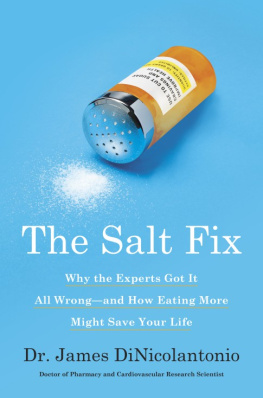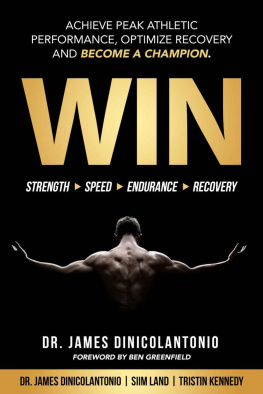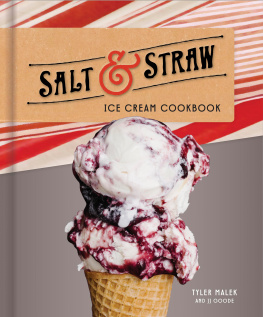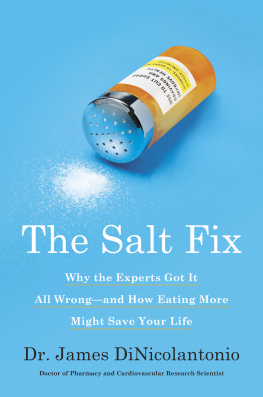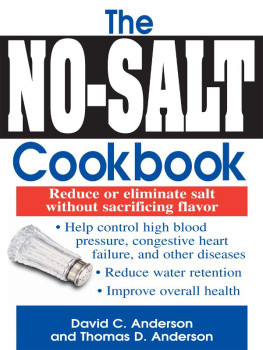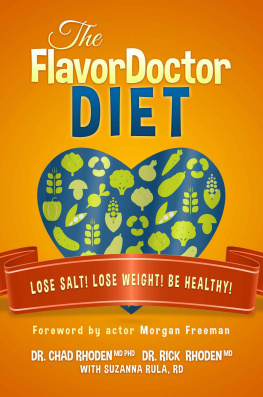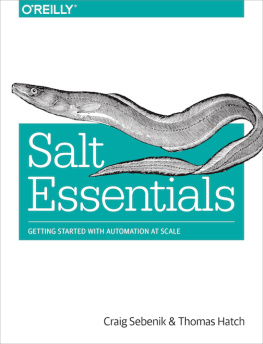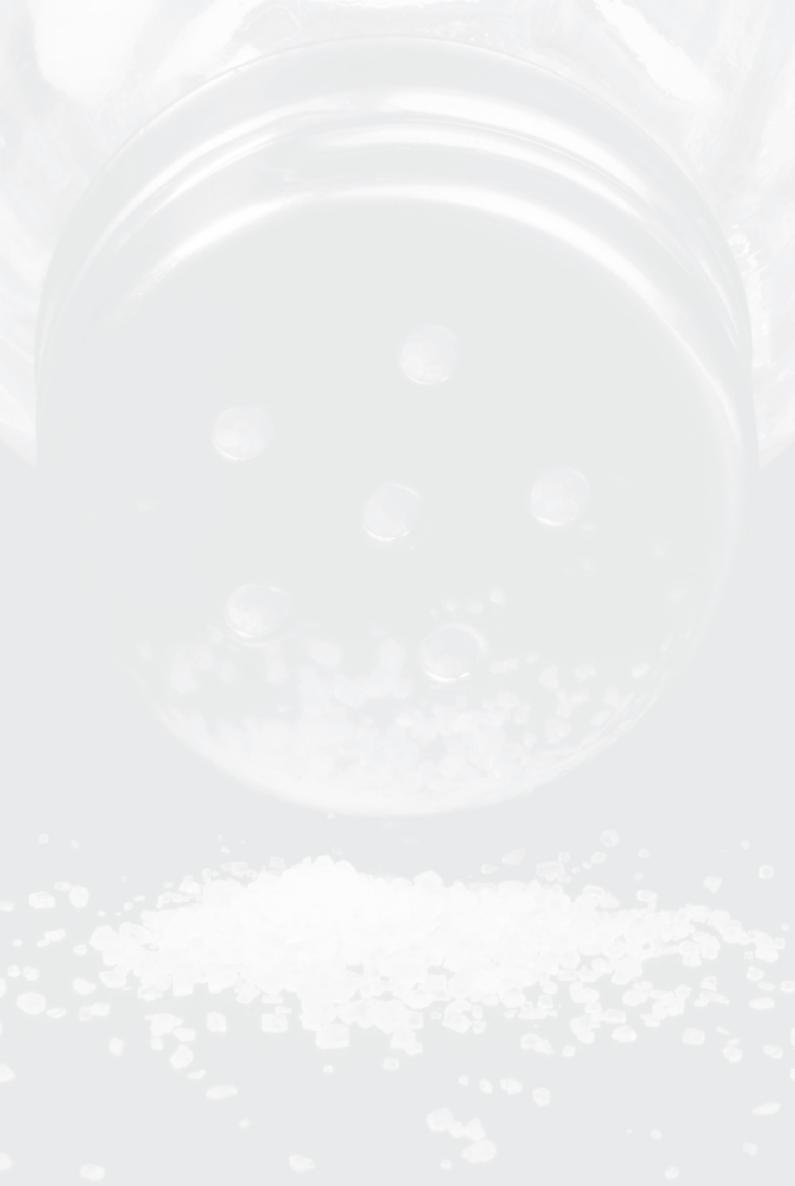Dr. James DiNicolantonio - The Salt Fix: Why the Experts Got It All Wrong--and How Eating More Might Save Your Life
Here you can read online Dr. James DiNicolantonio - The Salt Fix: Why the Experts Got It All Wrong--and How Eating More Might Save Your Life full text of the book (entire story) in english for free. Download pdf and epub, get meaning, cover and reviews about this ebook. year: 2017, publisher: Harmony, genre: Science. Description of the work, (preface) as well as reviews are available. Best literature library LitArk.com created for fans of good reading and offers a wide selection of genres:
Romance novel
Science fiction
Adventure
Detective
Science
History
Home and family
Prose
Art
Politics
Computer
Non-fiction
Religion
Business
Children
Humor
Choose a favorite category and find really read worthwhile books. Enjoy immersion in the world of imagination, feel the emotions of the characters or learn something new for yourself, make an fascinating discovery.
- Book:The Salt Fix: Why the Experts Got It All Wrong--and How Eating More Might Save Your Life
- Author:
- Publisher:Harmony
- Genre:
- Year:2017
- Rating:3 / 5
- Favourites:Add to favourites
- Your mark:
The Salt Fix: Why the Experts Got It All Wrong--and How Eating More Might Save Your Life: summary, description and annotation
We offer to read an annotation, description, summary or preface (depends on what the author of the book "The Salt Fix: Why the Experts Got It All Wrong--and How Eating More Might Save Your Life" wrote himself). If you haven't found the necessary information about the book — write in the comments, we will try to find it.
What if the low-salt advice is wrong?
Dr. James DiNicolantonio, a leading cardiovascular research scientist, has reviewed over 500 publications to unravel the impact of salt on blood pressure and heart disease. Hes reached a startling conclusion: The vast majority of us dont need to watch our salt intake. In fact, for most of us, more salt would be advantageous to your health. The Salt Fix tells the remarkable story of how salt became unfairly demonizeda never-before-told drama of competing egos and interestsand took the fall for another white crystal: sugar.
In fact, too little salt can:
Cause you to crave sugar and refined carbs.
Send the body into semi-starvation mode.
Lead to weight gain, insulin resistance, type 2 diabetes, cardiovascular disease, chronic kidney disease, and increased blood pressure and heart rate.
On the other hand, eating the salt your body desires can:
Improve everything from your sleep, energy, and mental focus to your fitness, fertility, and sexual performance
And stave off common chronic illnesses, including heart disease.
Dr. DiNicolantonio shows the best ways to add salt back into your diet, offering his transformative five-step program for recalibrating your salt thermostat to achieve your unique, ideal salt intake. Science has moved on from the low-salt dogma, and so should youyour life may depend on it.
Dr. James DiNicolantonio: author's other books
Who wrote The Salt Fix: Why the Experts Got It All Wrong--and How Eating More Might Save Your Life? Find out the surname, the name of the author of the book and a list of all author's works by series.

